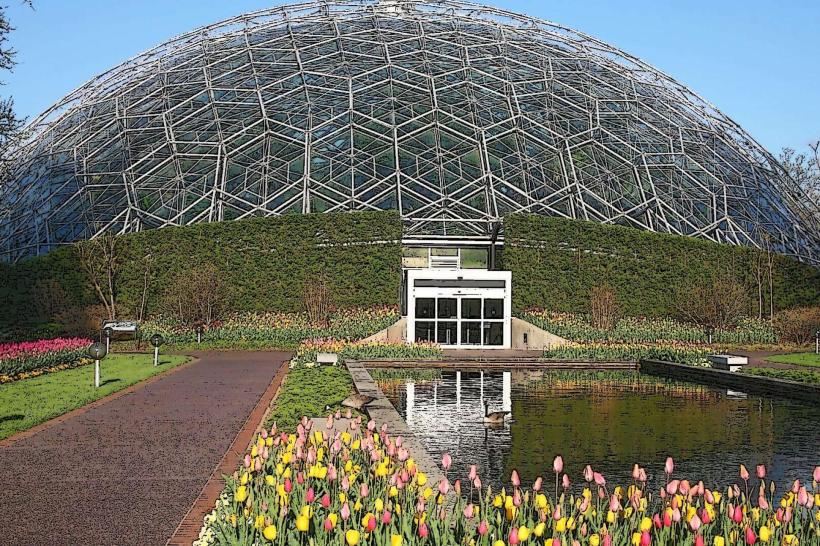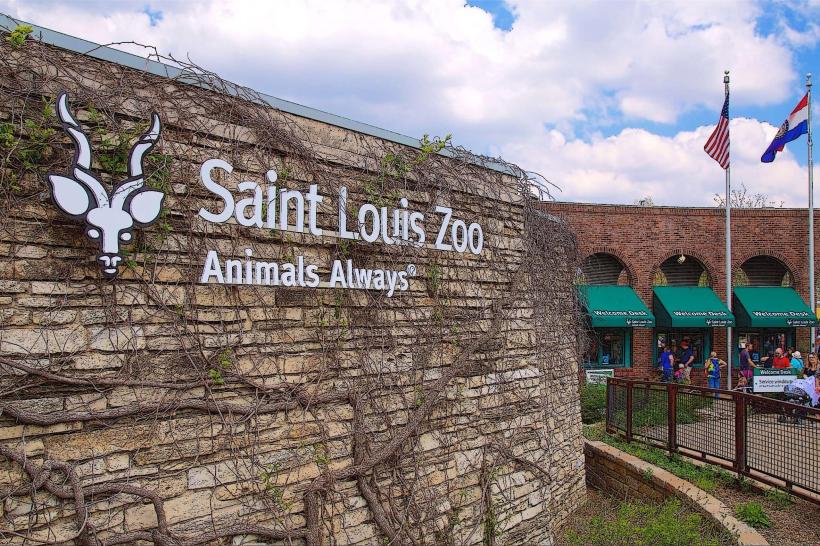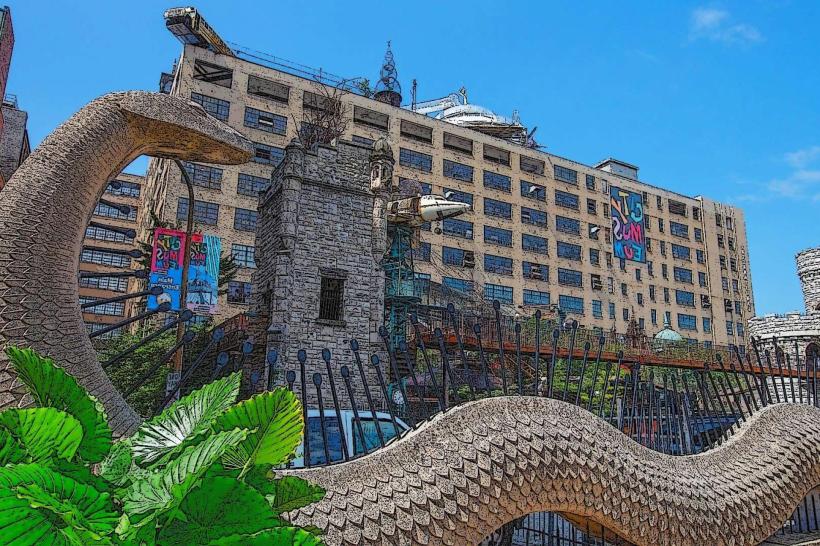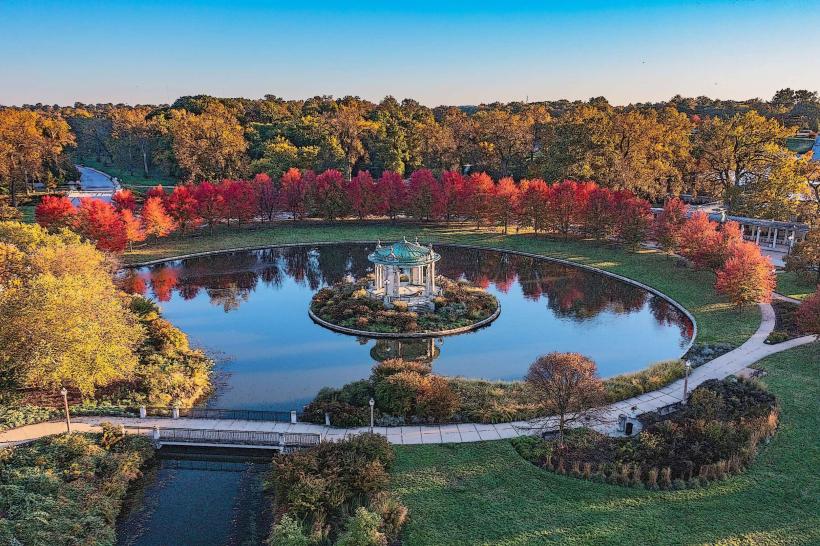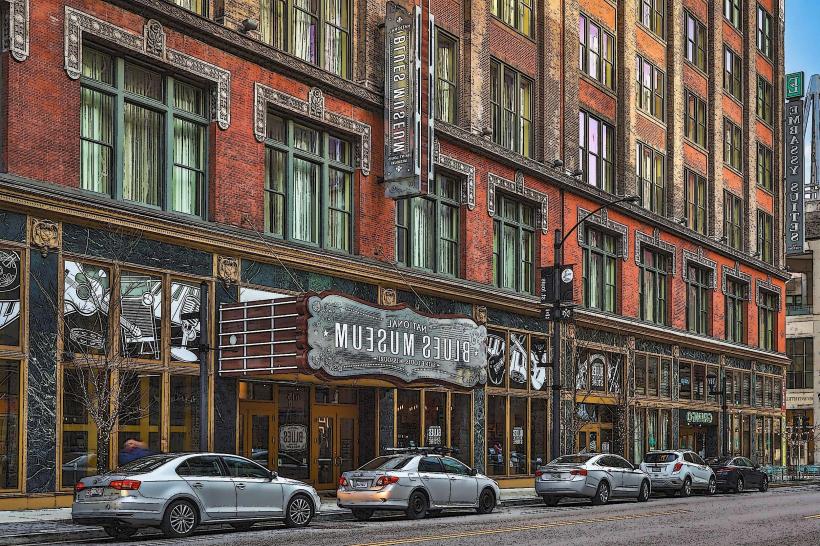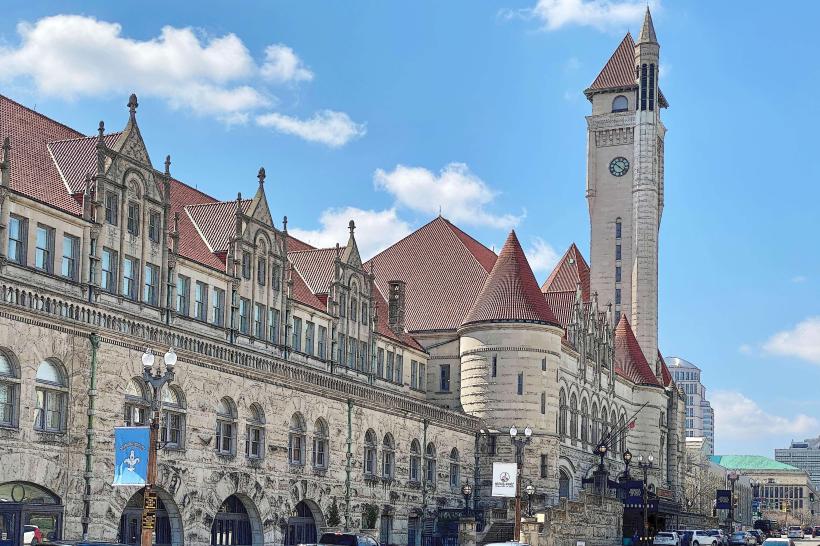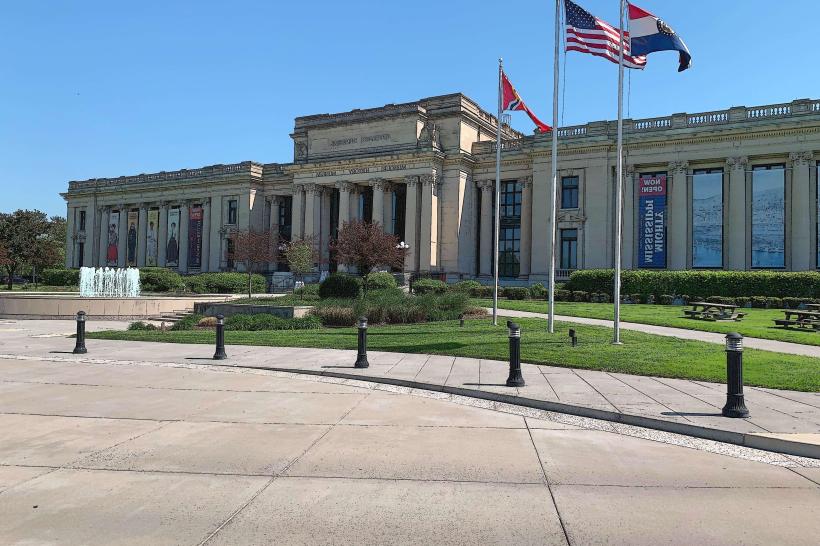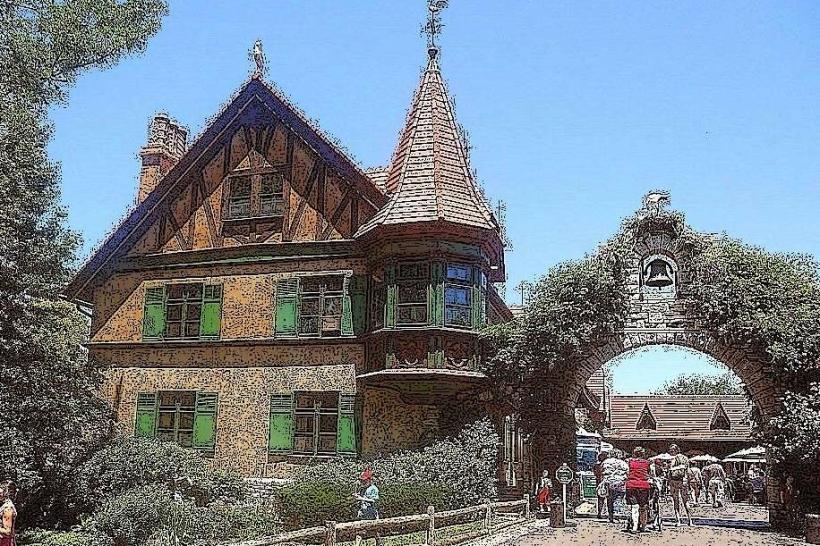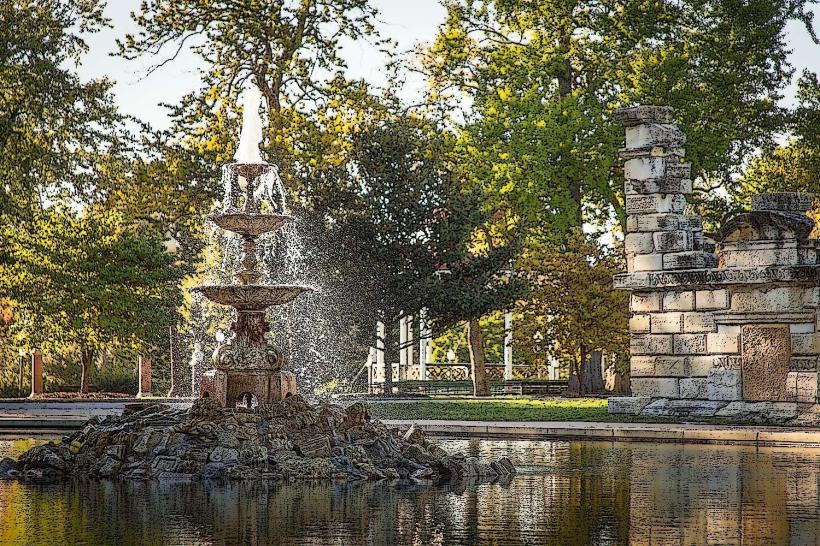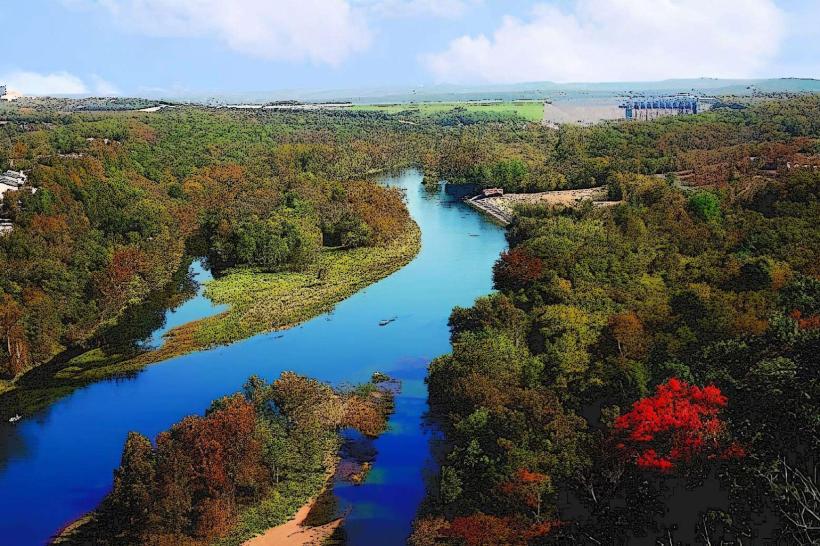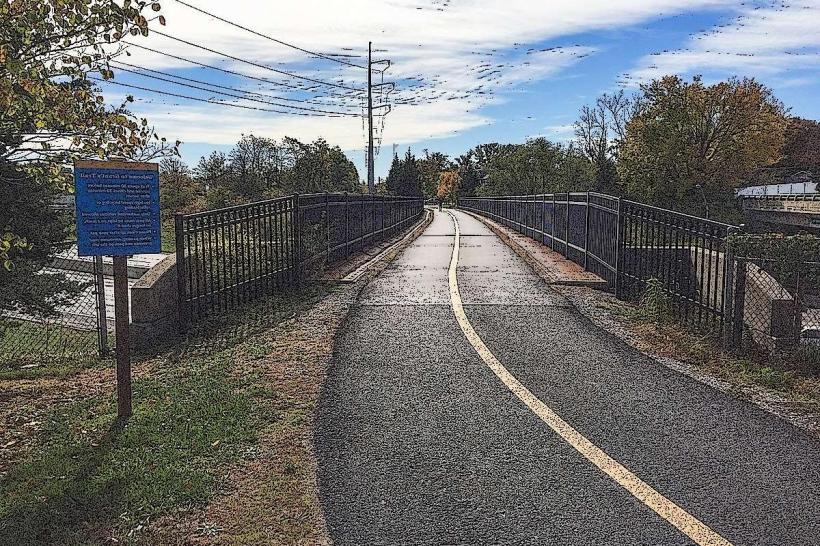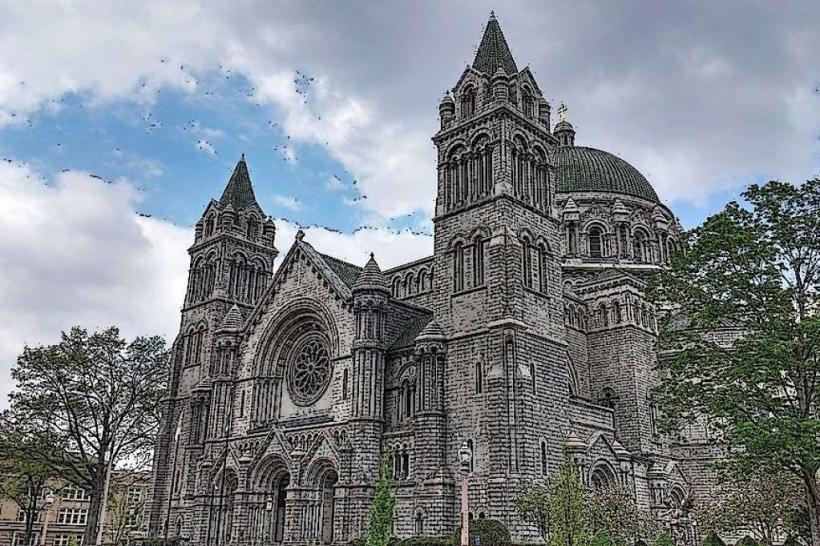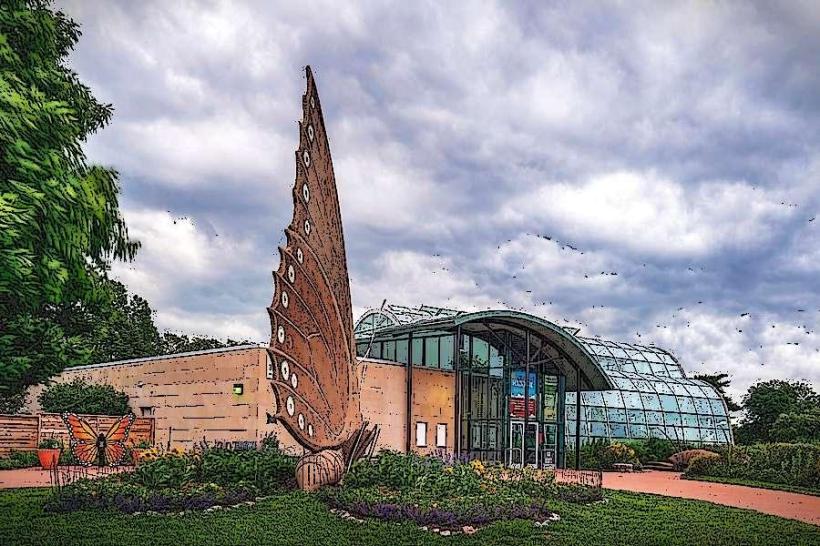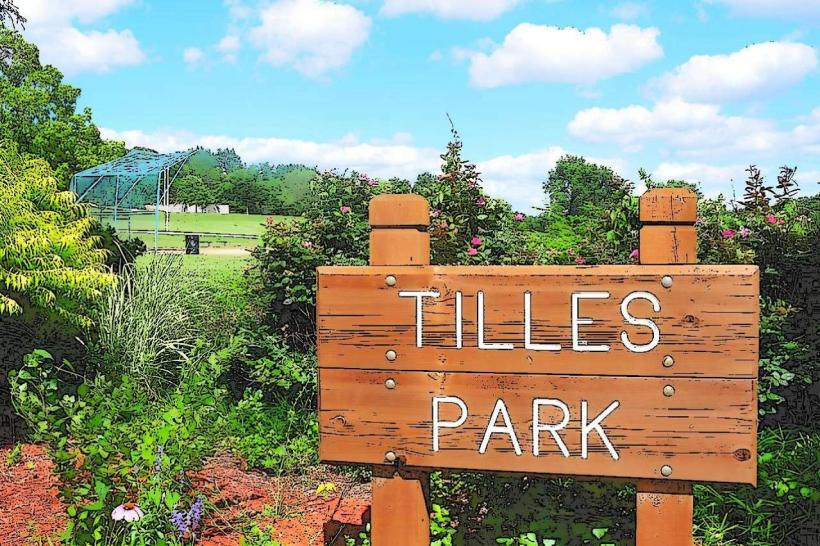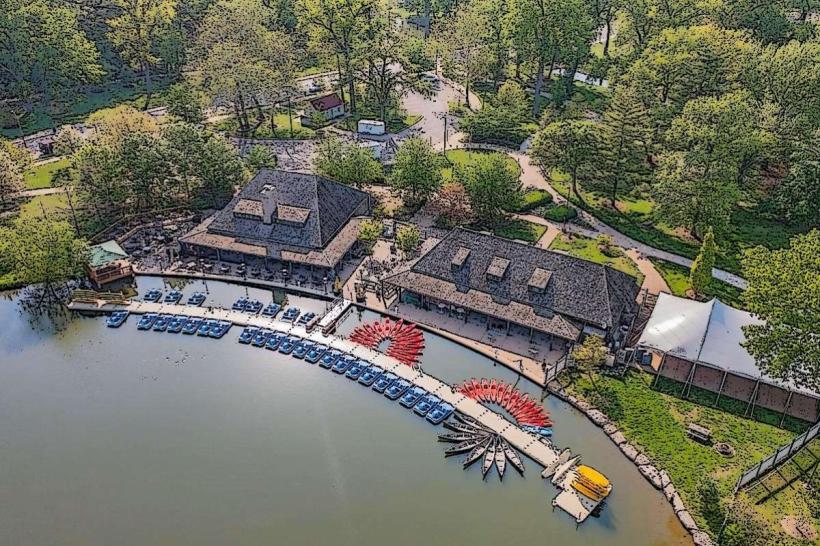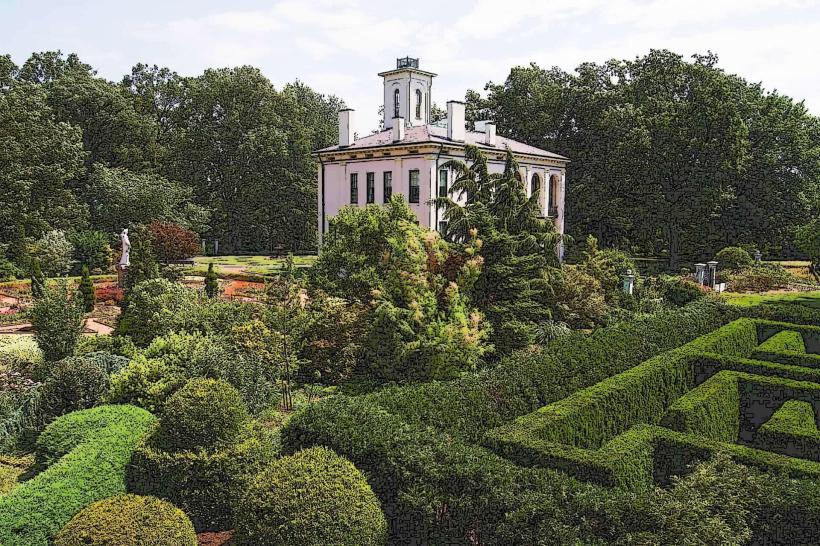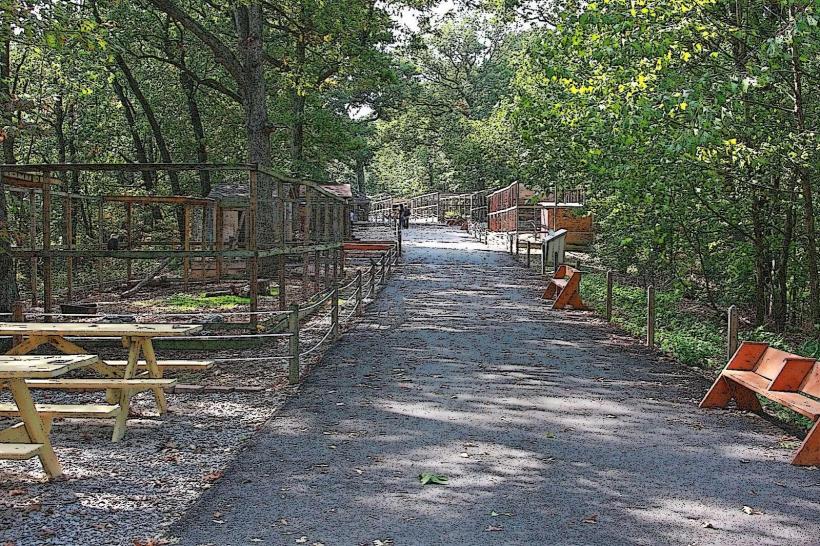Information
Landmark: Lone Elk ParkCity: St Louis
Country: USA Missouri
Continent: North America
Lone Elk Park, St Louis, USA Missouri, North America
Lone Elk Park is a 546-acre wildlife preserve located in western St. Louis County, Missouri, just outside the city of Valley Park. Operated by the St. Louis County Department of Parks and Recreation, the park offers a unique experience: a drive-through wilderness area where visitors can encounter large North American wildlife species such as elk and bison in their natural habitat. The park's combination of wildlife, history, and scenic beauty makes it one of the region’s most distinctive and rewarding outdoor destinations.
📜 Historical Background
Lone Elk Park occupies land that once formed part of the Tyson Valley Powder Plant, a military munitions testing site during World War II. After the war, wildlife-including elk and bison-was introduced to the area in 1948 as part of a short-lived experiment in game preservation. During the Korean War, military activity resumed and most of the animals were removed or died-except one bull elk that survived alone. That elk became a symbol of resilience and gave the park its eventual name: “Lone Elk.”
In the 1960s, the land was transferred to the St. Louis County Parks system. By 1971, the area was reopened as Lone Elk Park. New elk were imported from Yellowstone National Park, and American bison were acquired from the St. Louis Zoo to reestablish permanent herds.
🐂 Wildlife Viewing
Lone Elk Park is known for its drive-through safari-style wildlife viewing, with a paved road that loops around the park's main animal habitats. The entire loop can be completed in about 30–45 minutes without getting out of the vehicle, but many visitors stop often to watch animals in their natural environment.
Species commonly seen include:
Elk: Large herds roam the woodlands and meadows. During autumn rut season, males can be seen bugling and sparring.
Bison: Heavily built and imposing, they live in a separate enclosure but are fully visible from the road.
White-tailed deer: Found throughout the park and often grazing in open areas.
Wild turkeys: Common in the forested sections, especially in the early morning.
Waterfowl: Ducks, geese, and herons inhabit the park’s central lake.
Raccoons and other small mammals: Occasionally seen near forest edges or picnic areas.
The animals are not fenced from the drive route (except for bison, which have their own section). Visitors must stay inside their vehicles at all times in designated areas for safety, especially during breeding seasons when the animals can become aggressive.
🥾 Hiking & Trails
In addition to the drive-through experience, the park features several scenic hiking trails:
White Bison Trail: A 3.2-mile loop that traverses wooded hills and valleys. It can be moderately challenging, with occasional elevation changes and views of wildlife.
Lake Loop Trail: An easier 1.5-mile walk around the lake, ideal for birdwatching and peaceful strolls.
Trails are generally not heavily trafficked, making them perfect for those seeking solitude in nature. Visitors are advised to wear long pants and insect repellent, especially in summer, due to ticks and mosquitoes.
🧺 Park Amenities
Lone Elk Park is designed for day-use and nature immersion, with limited but practical facilities:
Picnic Shelters: Two large shelters available on a first-come, first-served basis or by reservation. Each includes picnic tables, barbecue grills, and trash receptacles.
Restrooms: Basic restroom facilities are available near the picnic areas.
Visitor Information: Trail maps and wildlife viewing tips are posted near the park entrance.
Fishing: Permitted in the central lake for visitors with a valid Missouri fishing license.
No pets allowed, even inside vehicles, due to the risk of wildlife aggression.
🕒 Operating Hours and Access
Open daily from sunrise to sunset (hours vary slightly by season).
Free admission; no entrance or parking fee is charged.
Vehicles only in animal areas; motorcycles, bikes, and pedestrians are prohibited on the loop road for safety reasons.
Best times to visit are early mornings and late afternoons, when wildlife is most active. Elk and deer are especially visible during these times, often seen grazing near the road or crossing it slowly, offering ideal photography moments.
🛣️ Directions & Nearby Attractions
Address: 1 Lone Elk Park Road, Valley Park, MO 63088.
Access: Easily reached via Interstate 44, Exit 272 (Highway 141), with well-marked signs to the park.
Nearby Sites:
World Bird Sanctuary: Located directly next to Lone Elk Park, features rehabilitated birds of prey and birdwatching programs.
Castlewood State Park: A popular destination nearby for hiking, mountain biking, and scenic bluffs overlooking the Meramec River.
🧭 Summary
Lone Elk Park is a rare find near an urban center like St. Louis-a peaceful sanctuary where visitors can observe free-roaming wildlife in a safe, accessible way. Whether you're slowly driving through a misty morning forest among herds of elk, hiking wooded trails with lake views, or enjoying a picnic surrounded by nature sounds, the experience is deeply calming and memorable. The park is a model of preservation and passive recreation, offering a tranquil yet wild escape without ever leaving the car.


